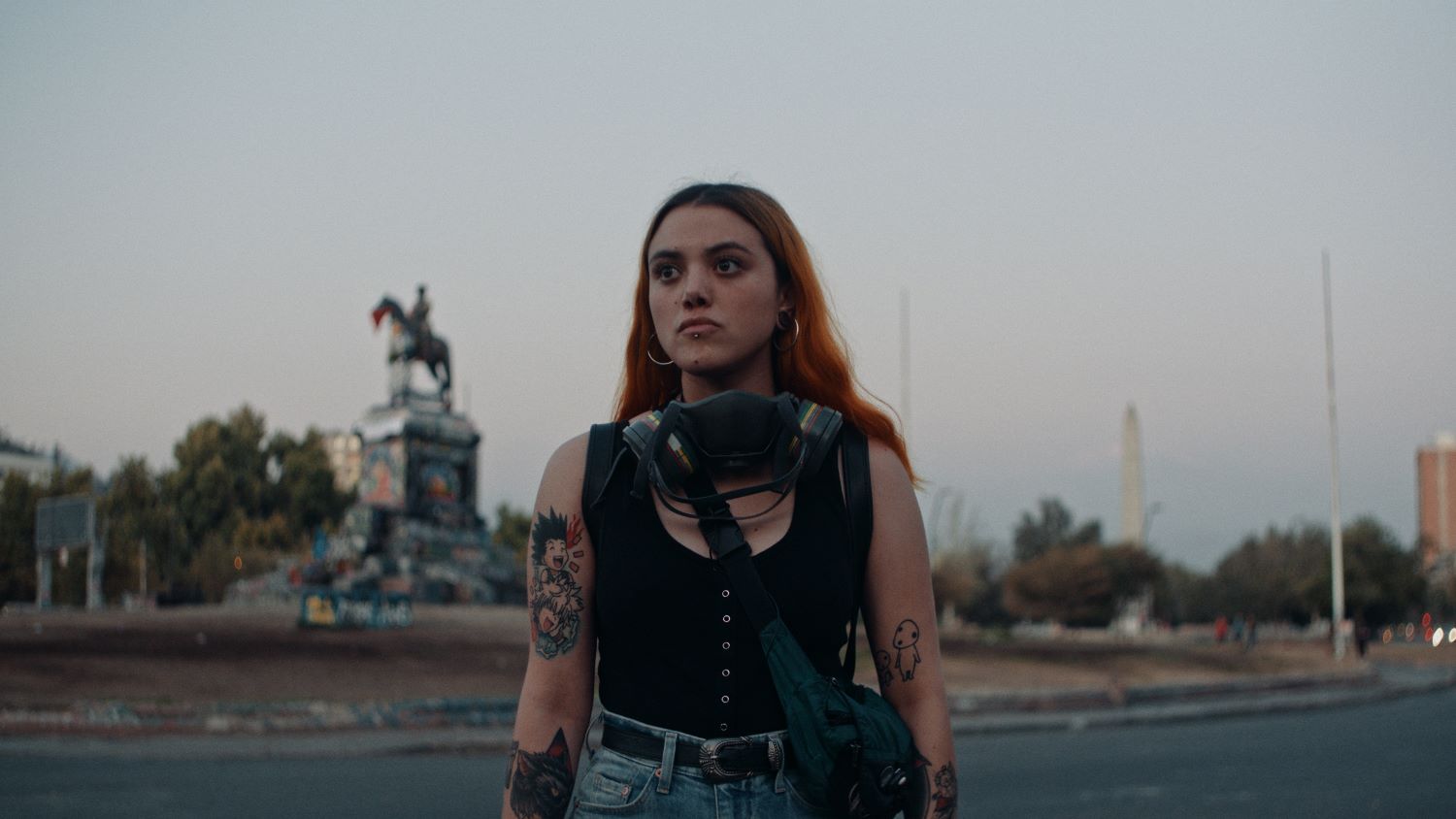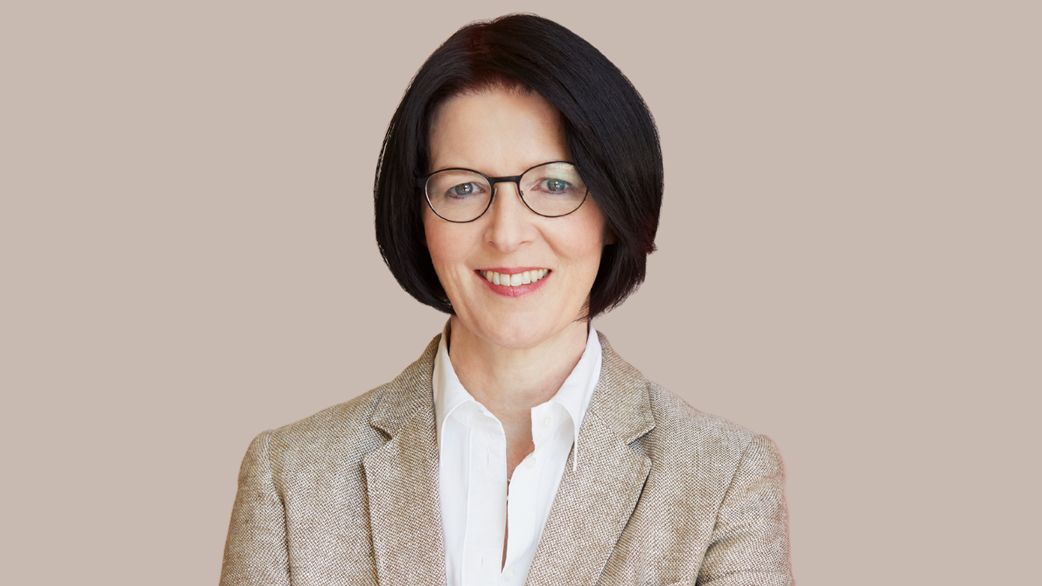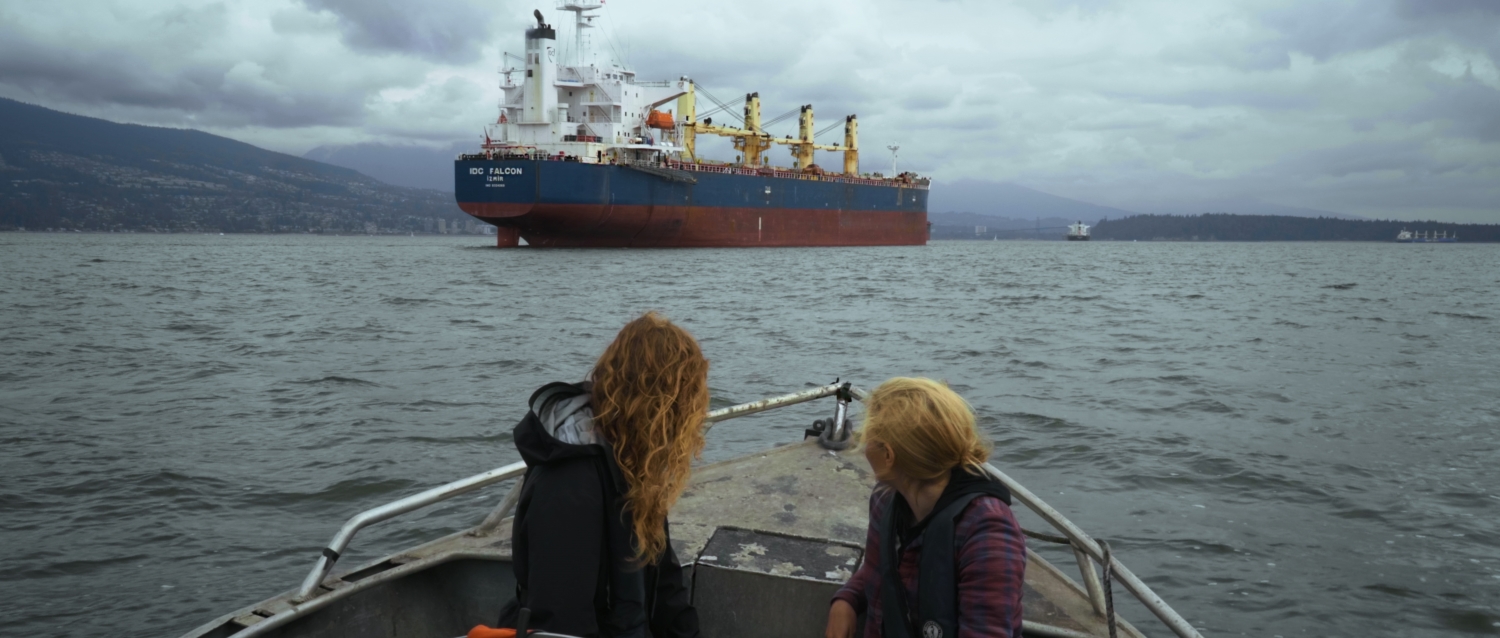A filmmaker is always on the go. Dear Future Children director Franz Böhm is chatting with POV via Zoom while en route from one screening to the next. On one hand, the hustle is proof of an energetic team of emerging filmmakers making the most of the opportunity before them. On the other, it’s evidence that Dear Future Children widely strikes a nerve with audiences.
Dear Future Children opens in Toronto this week after winning the Audience Award at Hot Docs earlier this year. The film features three activists—Rayen in Chile, Hilda in Uganda, and Pepper in Hong Kong—who represent the global movement of young people fighting for change. Böhm says they chose the three protesters following an extensive worldwide search in collaboration with like-minded parties and found three people who embodied different movements and were at the core of their respective fights.
In Chile, Rayen joins a chorus of young people standing up to a corrupt government that favours privatization and a widening rich/poor gap. In Uganda, Hilda works alone to raise awareness for climate change after her family endures devastating floods, which impacts her ability to go to school and get the education she deeply desires. Finally, in Hong Kong, Pepper is the wise but increasingly jaded activist joining the tidal wave of young people who follow the adage “be water” as they permeate the streets, evading police and drawing attention to China’s pervasive new security law with worldwide implications.
Dear Future Children doesn’t offer easy answers, and Böhm admits that it’s hard to know how to feel throughout the journey as his activists face different fates. However, the response to the film indicates an audience that is hungry for change. They just need to be inspired to act.
POV spoke with Böhm ahead of Dear Future Children’s release.
POV: Pat Mullen
FB: Franz Böhm
This interview has been edited for brevity and clarity.
POV: Congrats on the win at Hot Docs. It’s exciting to know that audiences will get another chance to see Dear Future Children. But let’s start at the beginning: how did you choose Rayen, Pepper, and Hilda as your three activists to follow?
FB: First, we researched eleven different protest movements in eleven countries. We had a long in-depth research phase where we talked with people on the ground and we collaborated with NGOs, activists, filmmakers and journalists. Then we decided on the three protest movements that we wanted to portray in this film. We wanted to choose protest movements where we could see a clear democratic majority behind these individual core interests. And we wanted to have three movements that were very different. For example, we didn’t want to choose three climate activists.
Secondly, we created a pool of interesting candidates for each country. That pool consisted of approximately ten people. To reach these people, we collaborated very closely with NGOs and other news outlets on the ground. We spoke to people directly. We got many full recommendations from other filmmakers or other frontline reporters. And then we wanted to choose the one person who was most representative for each movement.
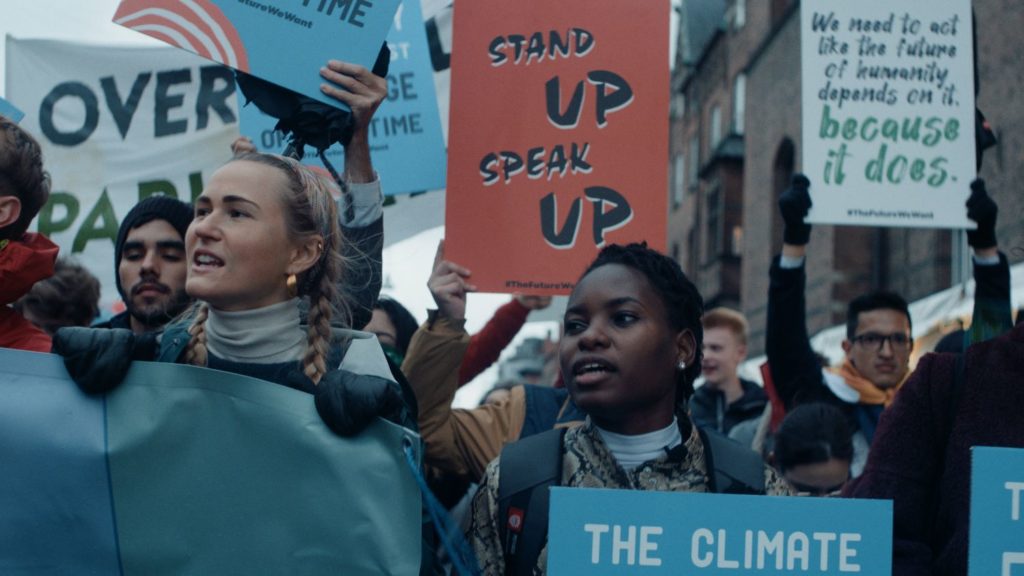
POV: Do you think being an emerging filmmaker gave you an advantage with the activists because you are from the same generation?
FB: Absolutely. One element was the most important for us from the start of the project, and that was honesty. We were very clear and honest with the goals of the project, with our principle strategy, and everything surrounding that. The fact that we had enough time for these specific countries meant a lot to them and, surely, our age helped in terms of accessing these protagonists. We were able to understand their motivations and backgrounds—we are from the same generation and we share the same fears, I would say. That certainly helped in terms of building a relationship based on trust and respect.
It also enabled us to film at the frontlines because we knew the other frontline activists and everybody knew what we were doing. We also had to clear many misunderstandings because many young activists have had bad experiences with North American and European news outlets that worked under so much pressure and used their stories in a negative way.
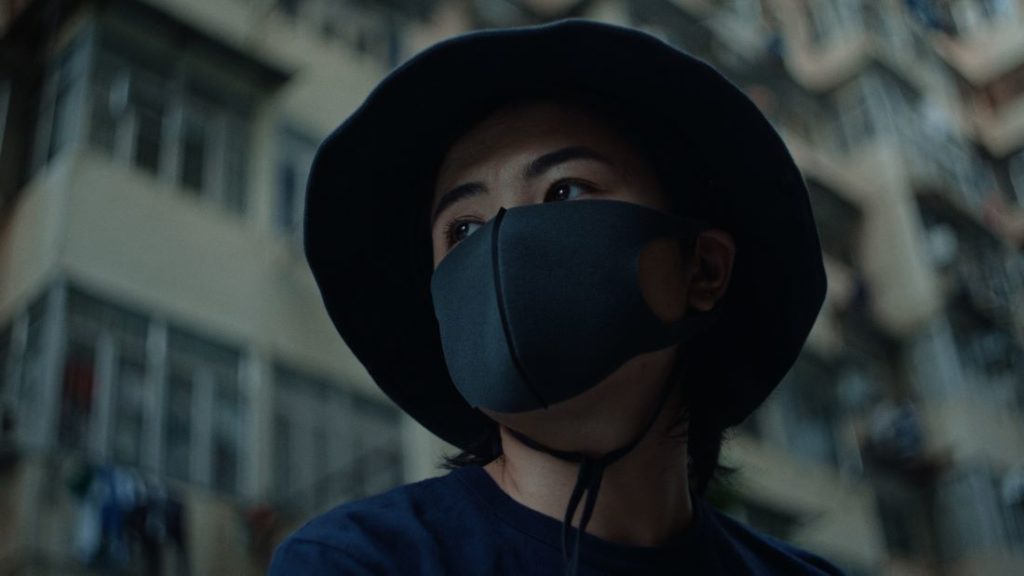
POV: You were filming on the frontlines in Hong Kong, Chile and Uganda, so how does the atmosphere of protest movements change from country to country?
FB: Hong Kong impressed our whole team because the protests were so well organized. They were very structured and they were able to divide different fields of responsibility for special divisions of the protest movement. They used every form of modern technology to their advantage, and they had to face a very powerful opponent, so they had to rethink their strategy on a daily basis. The protesters relied on social networks quite a lot, which I found very interesting. For strategy, they don’t have a clear leader because they learn from the past. It would’ve been too easy to take this specific person out.
POV: What about Uganda? Hilda seems alone in her fight, but in Chile, Rayen is clearly part of a network, but one that’s much different from Pepper’s in Hong Kong.
FB: Uganda was obviously the complete opposite of Hong Kong. It was a very small movement. It was still at the beginning and grew during that time [while we were filming]. We had an amazing experience with Hilda on the ground. She faced the biggest opponent because, in a way, her opponent can’t be beaten by a political coup or by a political majority. She’s in it for the long run and was confronted with the fact that many Ugandans didn’t know about the consequences of climate change. She had to live through it by herself, so that that defines her activism and character.
In Chile, the first thing that we saw when we researched the protests was that there is amazing street art that is so important for the movement. They’re using art, songs, and dancing as a way to express their feelings towards the government. That is really impressive.
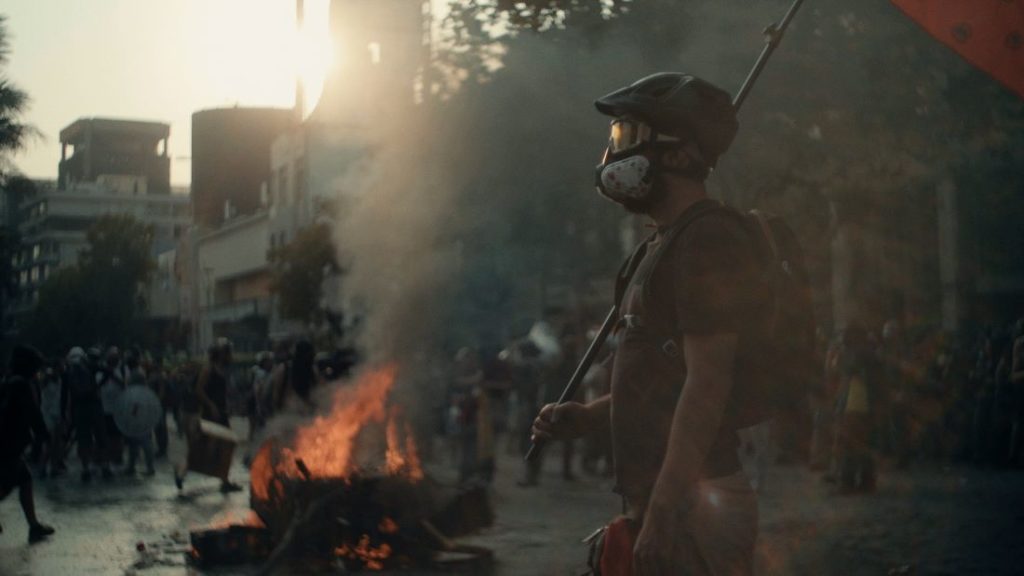
POV: It adds such a great visual element to the film as well. In Hong Kong, though, we see the security law come into effect and observe how that changes the game for Pepper and the other activists. How do you work to preserve the anonymity of the subjects and protect them while making the film, but also now that it’s gaining exposure and more people are seeing it?
FB: Securing the anonymity and safety of our protagonists was our top priority since the beginning of the project. Since the research stage, we worked with numerous universities worldwide, many of them in the U.S and Europe, to create a global infrastructure to secure film projects like this one. Part of that is also making sure that our protagonists stay anonymous and that this project can’t be used against them. We collaborated with different law firms to ensure the safety of the protagonists. Of course, Pepper always has a mask on. We also used a reverse deep-fake technology to ensure that she couldn’t be identified.
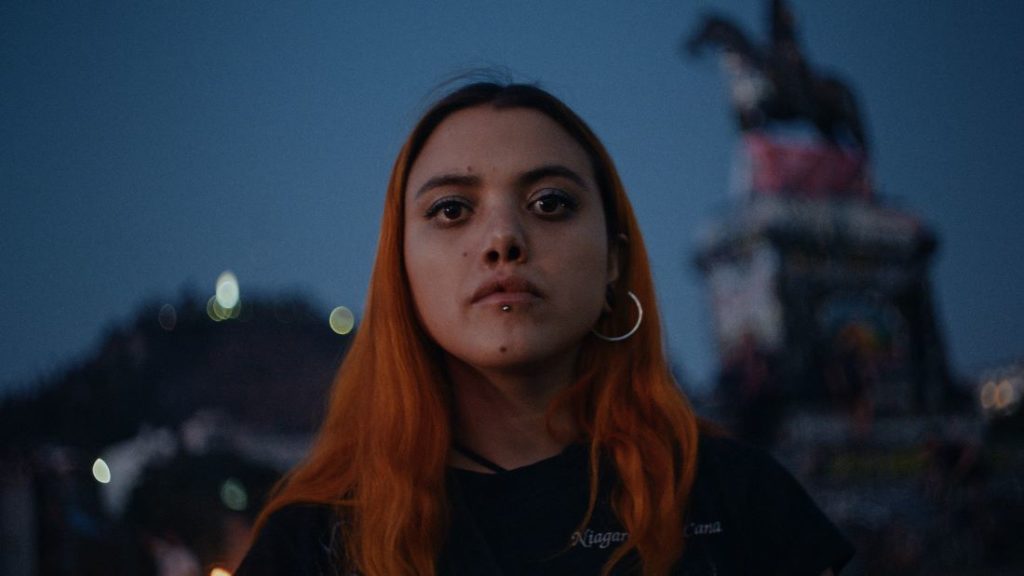
POV: Do you see documentary as a form of activism? Where does the line end between making an activist film and being an activist?
FB: That’s a question that we are confronted with during the release of the project. We see the future of filmmaking in a different light. We clearly see it as our job to tell relevant, important stories worldwide, and to give a platform to these important voices from all corners of the Earth. By doing that, we are mainly doing our job and we don’t want to put ourselves on the same level. Hilda, for example, has been literally fighting for her life since childhood. We mainly see ourselves as filmmakers, as storytellers, and we want to redefine what kind of stories are being told in the next few years.
POV: What is the pulse of the youth movement in Germany right now? In North America, Germany has been held up as a leader of democracy under Merkel, but that’s obviously changing. What’s the reality on the ground for young people in Germany?
FB: We recently had our elections and since Merkel is stepping down, the big question is who’s going to be our next chancellor and deliver our next government. At the moment, it is very likely that the Social Democrats, the opposition leader, will lead the government. The Green Party will also join the government and will most likely deliver a few important secretary positions. The climate movement is still active here in Germany and pushing for tougher laws and for more climate action. This year, we firsthand saw the consequences of climate change in a region called Ahrweiler where more than 200 people died because of huge flooding. That obviously was a shock for the state of Germany. The Fridays for Future movement is also still extremely active here. Young people are also not very satisfied with the election results themselves.
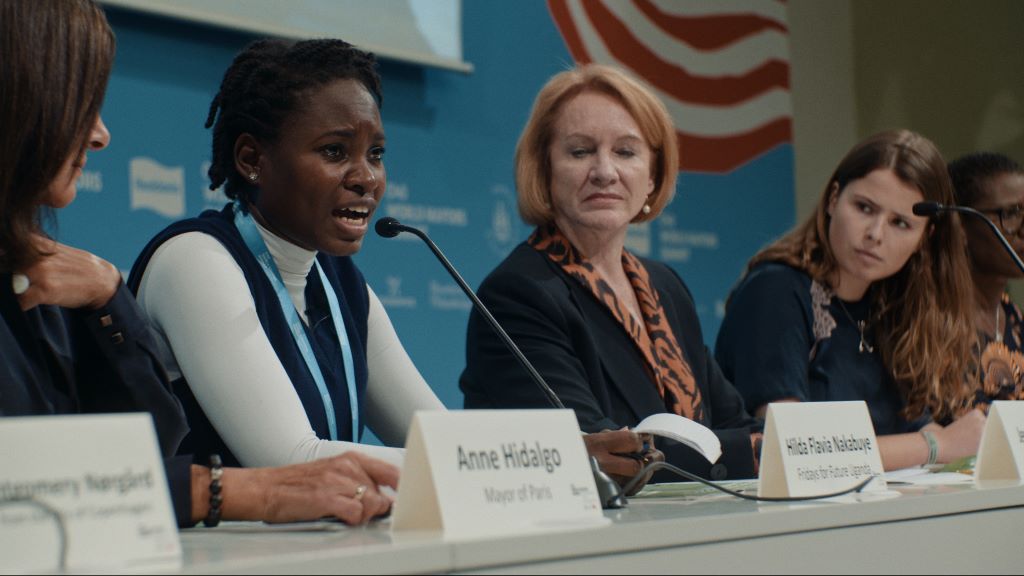
POV: With Fridays for Future, was it a conscious choice in your team not to include Greta Thunberg?
FB: It wasn’t really a conscious choice, but we wanted to feature protectionists from the backbone of the movement. We felt that there were already so many amazing films or films in development featuring Greta Thunberg. We thought that we could go with someone like Hilda who is working on the ground and who is inspired by her.
POV: After all this work making the film and now distributing it, are you optimistic about the future or do you feel more like Pepper at the end of this journey, and worry what you’re fighting for?
FB: That’s a very difficult question. While making this documentary, we learned that, as a young generation, there is more that unites us than divides us. There are tough challenges lying in front of us and we have to take over a huge responsibility, which we are doing at the moment with the film industry. We are really doing our best here and there’s still a lot of work to do.
Dear Future Children opens on October 15.




